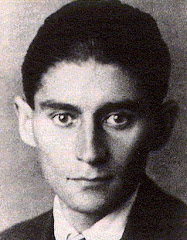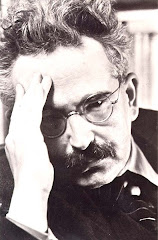The power of the story, which the historian grasps as the means for reenacting the past and for bringing it into the present, comes through in the following tale:
And here it is, as I have heard it told by the great Hebrew novelist and storyteller S.Y. Agnon: When the Ba’al Shem Tov [Founder of Hasidism, 1698-1760] had a difficult task before him, he would go to a certain place in the woods, light a fire, and meditate in prayer – and what he had set out to perform was done. When a generation later Dov Baer, the “Maggid” of Meseritz [1710-1772] was faced with the same task, he would go to the same place in the woods and say: We can no longer light the fire, but we can still speak the prayers—and what he wanted became a reality. Again, a generation later, Rabbi Moshe Leib of Sassov [1745-1807] had to perform this task. And he too went into the woods and said: We can no longer light the fire, nor do we know the secret meditations belonging to the prayer, but we do know the place in the woods to which it all belongs—and that must be sufficient; and sufficient it was. But when another generation had passed and Rabbi Israel of Rishin [1796-1850] was called upon to perform the task, he sat down on his gold chair in his castle and said: We cannot light the fire, we cannot speak the prayers, we do not know the place, but we can tell the story of how it was done. And, the storyteller, adds, the story he told had the same effect as the actions of the other three.
This story, which Gershom Scholem, the great historian of Jewish mysticism, recounts, gets at the center of what history is. The ancients had their temple rituals and the medievals had their sacraments. We moderns have our histories. As collective members of a secular and technological age, we are unable to free ourselves from the scientific paradigms that govern our experience and cloud our faith with skepticism. We no longer know the prayers or how to light the fire or even where to go. But we are able to tell the story of those for whom faith was a precondition of experience. And in telling the story, in believing that others could believe, we ourselves take the leap of faith. The previous ages found meaning in space, but we find it in time. We enter the woods to say our prayers and light our fires when we enter the library archives and when we fill them with our own writings. If it is enough that Rabbi Israel Rishin told the story of his forefathers, it is enough that S.Y. Agnon told the story about Rishin telling the story, and it is enough that Scholem told the story about Agnon telling the story about Rishin telling the story. In every retelling, the story changes slightly with its storyteller. But in effect, the truth of the story is preserved, since the story is itself simply about telling the story. No matter who tells it or how, the story remains. Historians, the “scientific” bards of the modern age, may revise their stories as certain facts come into and out of favor and as modes of causal analysis change, but the ultimate importance that they serve in all of their writings and rewritings is not so much in the stories they tell, but in the fact that they tell a story. The historians tell the story of humankind not as omniscient narrators, but as characters. The histories they write do not capture the plot so much as they drive it.
Faith that all of the conflicting histories will resolve themselves into one historical truth and that all of the characters on the stage of history will come together in unity, a Hegelian transmutation of Smith’s notion of the “invisible hand,” is dogmatic if we conceive it to mean that a conscious absolute spirit operates within the world as its driving force. To posit that history is moving toward an “end of history,” and to claim knowledge of what such an end of history entails is unduly orthodox. But to believe that the story will continue and that every telling of the story is an end in itself— that history, in a sense, occurs so that it may be told and retold —this is the courageous leap that the historian must, on some level, make. The historian cannot prove the truth of such a claim except by accepting it. Only by striving to tell the story does the historian show that history is the telos of history.
Friday, July 4, 2008
Subscribe to:
Post Comments (Atom)






No comments:
Post a Comment